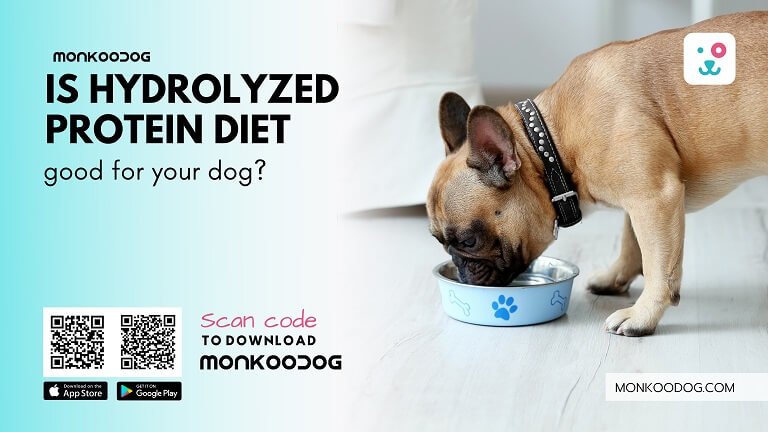Hydrolyzed protein diet for dogs has become increasingly popular in recent years, especially among pet owners whose dogs suffer from food allergies or intolerances.
Hydrolyzed protein is a protein that has been broken down into smaller, more easily digestible components.
Feeding hydrolyzed protein to dogs can help reduce the risk of an allergic reaction by minimizing the presence of large protein molecules that could trigger a response.
What should you know about hydrolyzed protein diets for your dog?
While there is no definitive answer to whether hydrolyzed protein diets are suitable for dogs, there are several factors to consider when deciding whether to feed your dog a hydrolyzed protein diet.
First and foremost, it’s essential to understand the difference between food allergy and food intolerance. A food allergy is an immune response triggered by a particular protein in a dog’s food.
In contrast, food intolerance is a digestive issue that arises when a dog’s digestive system has trouble breaking down a specific food ingredient.
If your dog has a food allergy, a hydrolyzed protein diet may effectively manage its symptoms.
Hydrolyzed protein diets reduce the likelihood of an allergic reaction by breaking down the protein into smaller components.
This can be especially important for dogs with severe reactions to specific proteins, as an allergic reaction can be life-threatening.
When is this diet not recommended?
However, there may be better options than a hydrolyzed protein diet if your dog is intolerant. While hydrolyzed protein diets can be easier to digest than other types of protein, they may not address the underlying cause of discrimination.
Instead, it may be more effective to identify the specific ingredient causing the prejudice and eliminate it from your dog’s diet.
Another factor to consider is the quality of your hydrolyzed protein diet. Not all hydrolyzed protein diets are created equal, and some may contain lower-quality ingredients or lack the essential nutrients your dog needs to thrive.
Choosing a hydrolyzed protein diet that is nutritionally complete, balanced, and meets your dog’s specific needs is critical.
Manage food allergies better
Additionally, it’s important to note that while hydrolyzed protein diets can effectively manage food allergies, they may not be a cure.
In some cases, dogs may develop new allergies to other proteins over time, which means that a hydrolyzed protein diets may need to be adjusted or changed to address new symptoms.
It’s essential to consult with your veterinarian before changing your dog’s diet, including switching to a hydrolyzed protein diet. Your veterinarian can help determine whether a hydrolyzed protein diet is appropriate for your dog and can guide you in selecting the best diet for their needs.
In conclusion, hydrolyzed protein dog foods can effectively manage allergies in pets, especially for dogs with food intolerances.
It’s essential to choose a high-quality, nutritionally complete, and balanced diet that meets your dog’s specific needs, and don’t forget to consult with your veterinarian before making any changes to your dog’s diet. Pay attention to your dog’s food requirements.

